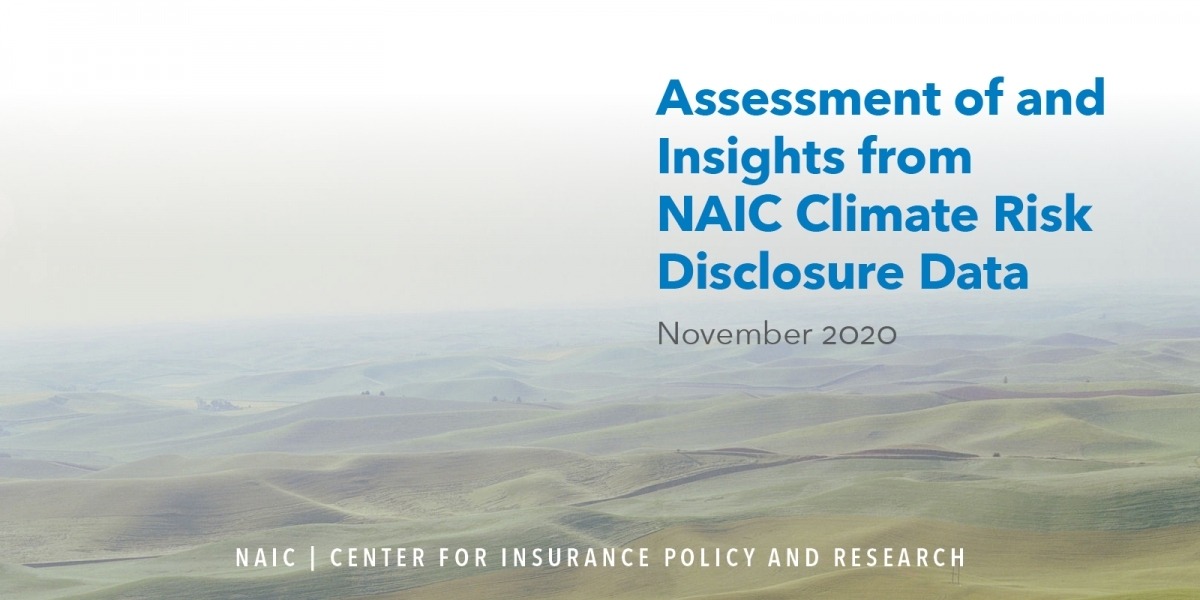WASHINGTON (November 23, 2020) – The National Association of Insurance Commissioners (NAIC) Center for Insurance Policy and Research (CIPR) releases its findings from an analysis of the Insurer Climate Risk Disclosure Data Survey today, in a report titled Assessments of and Insights from NAIC Climate Risk Disclosure Data (PDF).
The Insurer Climate Risk Disclosure Data Survey was adopted by the NAIC in 2010. The goal of the survey is to provide regulators with information about the assessment of risks posed by climate change to insurers and the actions insurers are taking in response to their understanding of climate change risks.
“Disclosure of climate change risks and associated actions are important because of the potential impact of climate change on insurer solvency and insurance availability and affordability across all major categories of insurance: property casualty, life and health,” said NAIC Communication Research Scientist, Lisa Groshong, Ph.D.
The climate risk disclosure data is based on eight questions covering topics including climate risk governance, climate risk management, modeling and analytics, stakeholder engagement and greenhouse gas management.
“For this report, we looked at data from about 1,200 companies that participated in the survey in 2018,” said Groshong. “We believe the climate risk disclosures will help regulators evaluate insurance industry risks and help other companies identify actions to mitigate climate risk.”
Overall, among the CIPR’s findings were:
- Few insurers report altering their investment strategy in response to considerations of the impact of climate change on its investment portfolio.
- More than half of all companies report at least some engagement in enterprise-wide climate risk management.
- A majority of insurers across every line of business reported similar levels of engagement with internal greenhouse gas management.
- Given a global push toward adopting the reporting guidelines proposed by the Financial Stability Board’s Task Force on Climate-related Financial Disclosures, opportunity exists to bring the survey into alignment with other climate risk disclosures and to improve the ability to analyze the survey’s results by adopting a multiple choice format.
- Reported engagement in climate-related activities has increased over the years that the survey has been collected.
The NAIC has been studying the growing impact of climate change since 2005. The CIPR findings will be reviewed in detailed by the organization’s new Climate & Resiliency Executive Task Force which was established July 14, 2020.
Responses covering the 2019 calendar year were due Aug. 31, 2020. CIPR plans to update its quantitative findings to incorporate the new survey responses.
For questions about the report or data, contact the NAIC’s Center for Insurance Policy and Research.

